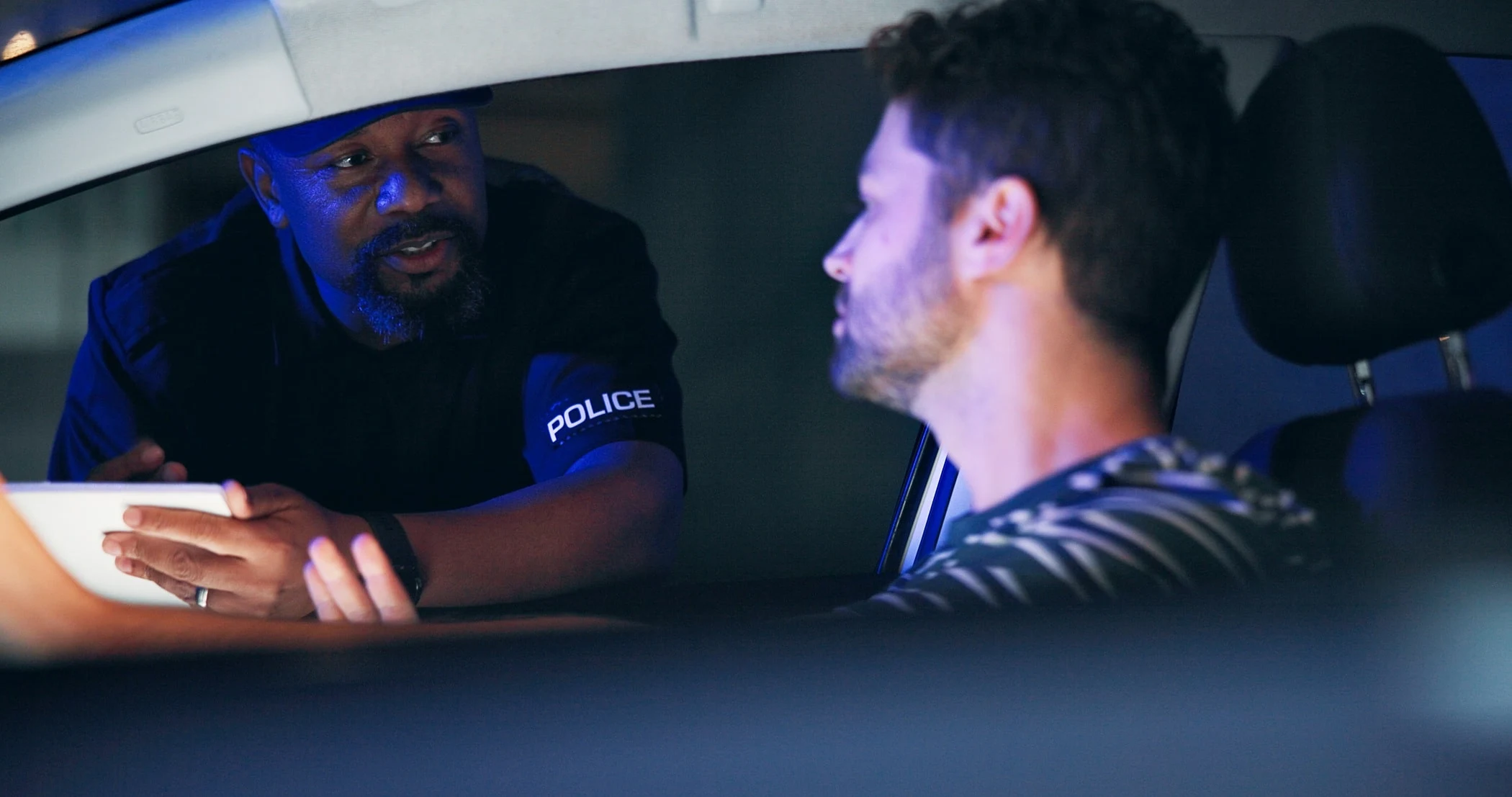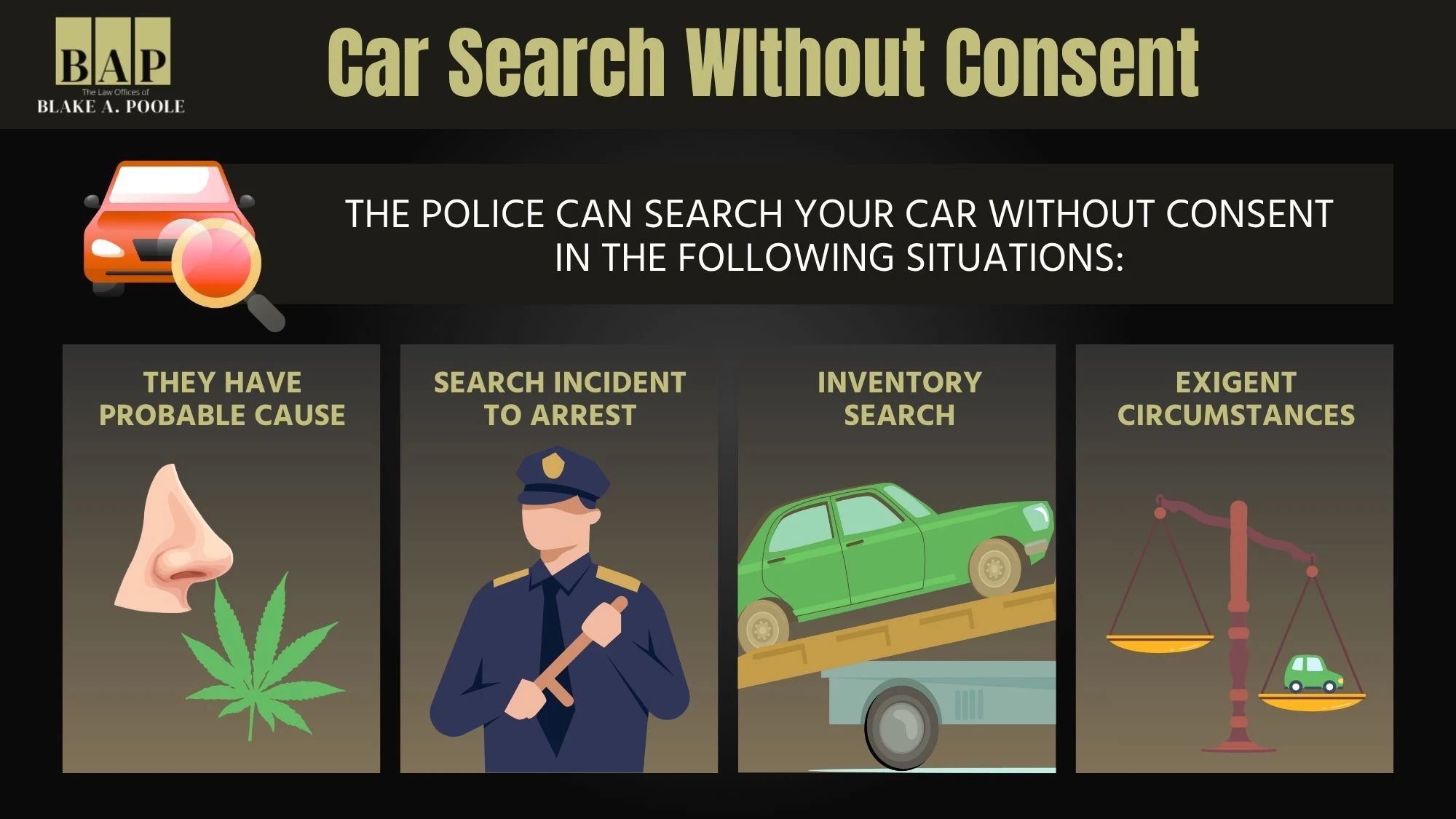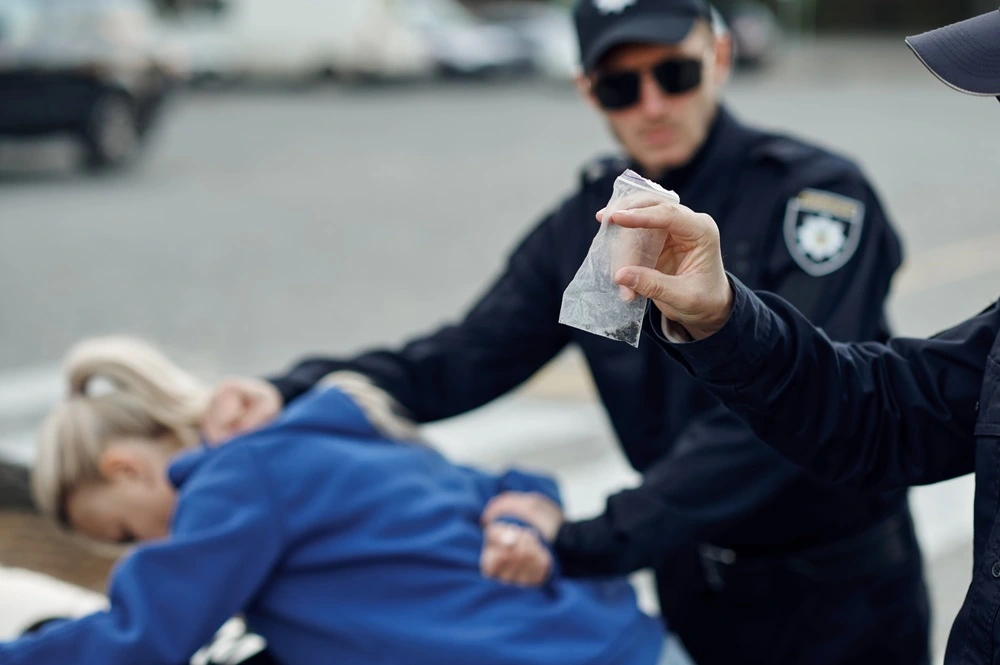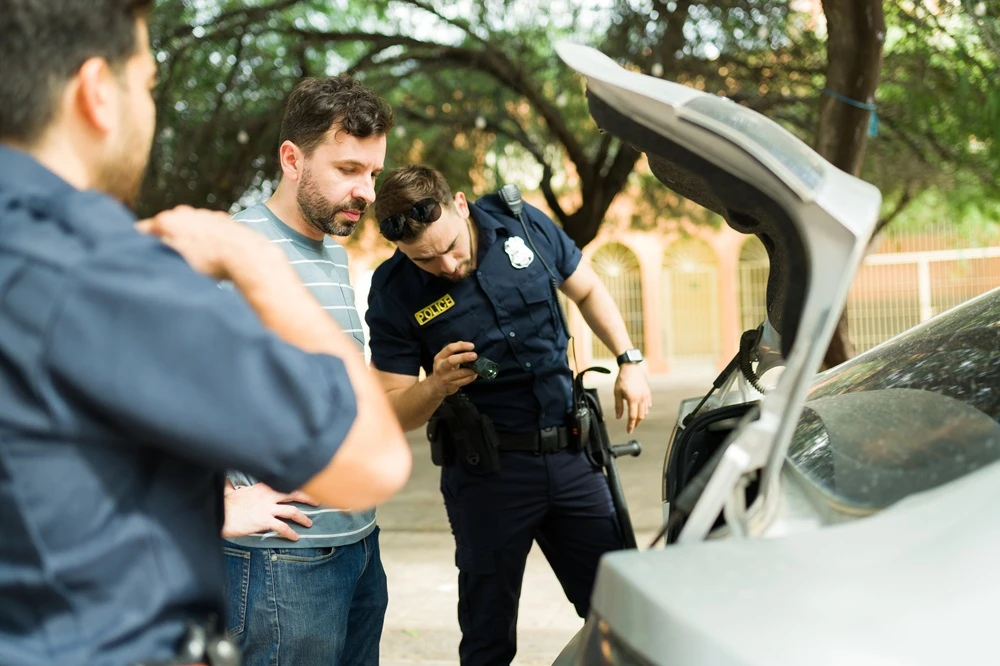September 24, 2025
By Blake A.Pool
Free Consultations
|
24/7 for Emergency Help

October 29, 2025
By Blake A. Poole
Getting pulled over is stressful enough. But what if the officer suddenly asks to search your car? Do you have to say yes? Can Georgia police search your vehicle without your consent or a warrant? The answer depends on why they stopped you and what they observed during that traffic stop.
Let’s break down when police can search your vehicle, when they can’t, what your rights are under the Fourth Amendment, and when to hire a criminal defense lawyer to protect them.
The U.S. Constitution protects you from unreasonable searches and seizures. In Georgia, that means officers generally can’t search your car without a warrant or your consent unless a specific exception applies.
That said, traffic stops often fall into a legal gray area. Because vehicles are mobile and subject to public regulation, the Supreme Court has recognized several exceptions to the usual warrant requirement. Understanding these exceptions can help you identify when a police search crosses the line.

While getting consent is the simplest route for officers, there are several situations where they may not need it.
If an officer has probable cause to believe that your vehicle contains evidence of a crime, such as drugs, weapons, or stolen property, they can perform a warrantless search under the so-called “automobile exception”. For instance, if an officer smells marijuana or sees drug paraphernalia in plain view, it may justify a full vehicle search.
After arresting a driver, police can search areas within immediate reach, like the glove box or under the seat, to check for weapons or evidence related to the arrest. This is known as a search incident to arrest.
If your car is lawfully impounded (for example, after an arrest or accident), officers can conduct an inventory search. This inspection is intended to catalog your belongings and protect against theft claims, not to hunt for evidence. However, any illegal items the police find can still be used against you.
In true emergencies where public safety is at risk, the police may search your vehicle without a warrant. For example, if they believe that someone’s life is in danger or evidence is about to be destroyed, the courts may consider that an exigent circumstance.
#cta_start
If you think the police searched your car illegally, we’ll review your case and explain your legal options.
#cta_end
Outside of these limited exceptions, there are clear limits on when officers can search your vehicle.
The police can’t perform a search just because they “feel that something is off”. Without consent, a warrant, or one of the recognized exceptions, any search of your vehicle could be considered illegal under the Fourth Amendment.
If the officer doesn’t have probable cause or a specific justification, you have the right to refuse consent. Politely state, “I do not consent to a search”. You’re not required to explain your reasons, and refusing can’t be used as evidence of guilt.
Here are some typical traffic stop scenarios and what the law says about them:

If a police officer asks to search your car, how you handle the interaction matters. Here are some crucial dos and don’ts:
If officers discover illegal items like drugs, weapons, or stolen property during a search, they may bring criminal charges. However, if your lawyer can prove that the search violated your constitutional rights, that evidence could be suppressed in court.
This is where the services of an experienced criminal defense attorney become invaluable. Your lawyer can examine whether the officer had probable cause and whether the search fell under a legitimate exception.

Yes, but only in specific, legally defined situations. Georgia law gives police certain leeway during traffic stops, but that power isn’t unlimited.
If you were stopped, your vehicle was searched, and now you’re facing charges, don’t assume that the search was justified. Many cases turn on whether the officer’s conduct met constitutional standards.
When a police officer searches your car without consent, the outcome can affect your freedom, your record, and your future. At The Law Offices of Blake A. Poole, we help drivers challenge unreasonable searches and seizures, assert their constitutional rights, and fight back against criminal charges that stem from questionable police conduct.
If you’re facing charges after a traffic stop, don’t wait to act. Contact us today to begin working with an attorney who knows how to defend your rights in court.
#faqs_start
Not unless they have a valid legal reason. You have the constitutional right to refuse to submit to a search. If an officer asks to look inside your vehicle, simply say, “I do not consent to a search”.
However, there are situations where this approach may not be feasible. Police can search your car without consent if they have probable cause (for example, they see drugs or weapons in the passenger seat), if they’re searching your vehicle upon your arrest, or if your vehicle is being impounded and they perform an inventory search.
Generally, no. If a police officer lawfully stops you and instructs you to step out of the vehicle, you must comply.
The Supreme Court has ruled that officers may order drivers or passengers to get out for safety reasons. Refusing to do so could escalate the situation or lead to arrest for obstruction. However, you still have the right to remain silent and refuse a search without consent.
Yes. An officer must have a reasonable suspicion that you violated a traffic law or are involved in criminal activity before making a stop. Examples include speeding, a broken taillight, or erratic driving.
Random stops are considered unreasonable seizures under the Fourth Amendment. The only exception is legal checkpoints, such as DUI or safety roadblocks authorized under Georgia law.
No, you’re not legally required to roll your window all the way down during a traffic stop. You must lower it enough to communicate clearly, hand over your license and registration, and comply with lawful orders.
If you feel uncomfortable, you can keep the window only partially open, but do your best to be polite and cooperative. Refusing to communicate or acting hostile could give officers more reason to escalate the stop.
#faqs_end
Our skilled Georgia defense attorneys can challenge the search and help suppress unlawfully acquired evidence.
Lorem ipsum dolor sit amet, consectetur adipiscing elit. Suspendisse varius enim in eros elementum tristique. Duis cursus, mi quis viverra ornare, eros dolor interdum nulla, ut commodo diam libero vitae erat. Aenean faucibus nibh et justo cursus id rutrum lorem imperdiet. Nunc ut sem vitae risus tristique posuere.
We begin working immediately to preserve evidence, interview witnesses, and file necessary motions. Early intervention often prevents charges from being filed or reduces their severity.
You have only 30 days to challenge your license suspension. Every day you wait makes it harder to build a strong defense. Call now!
Block Quote